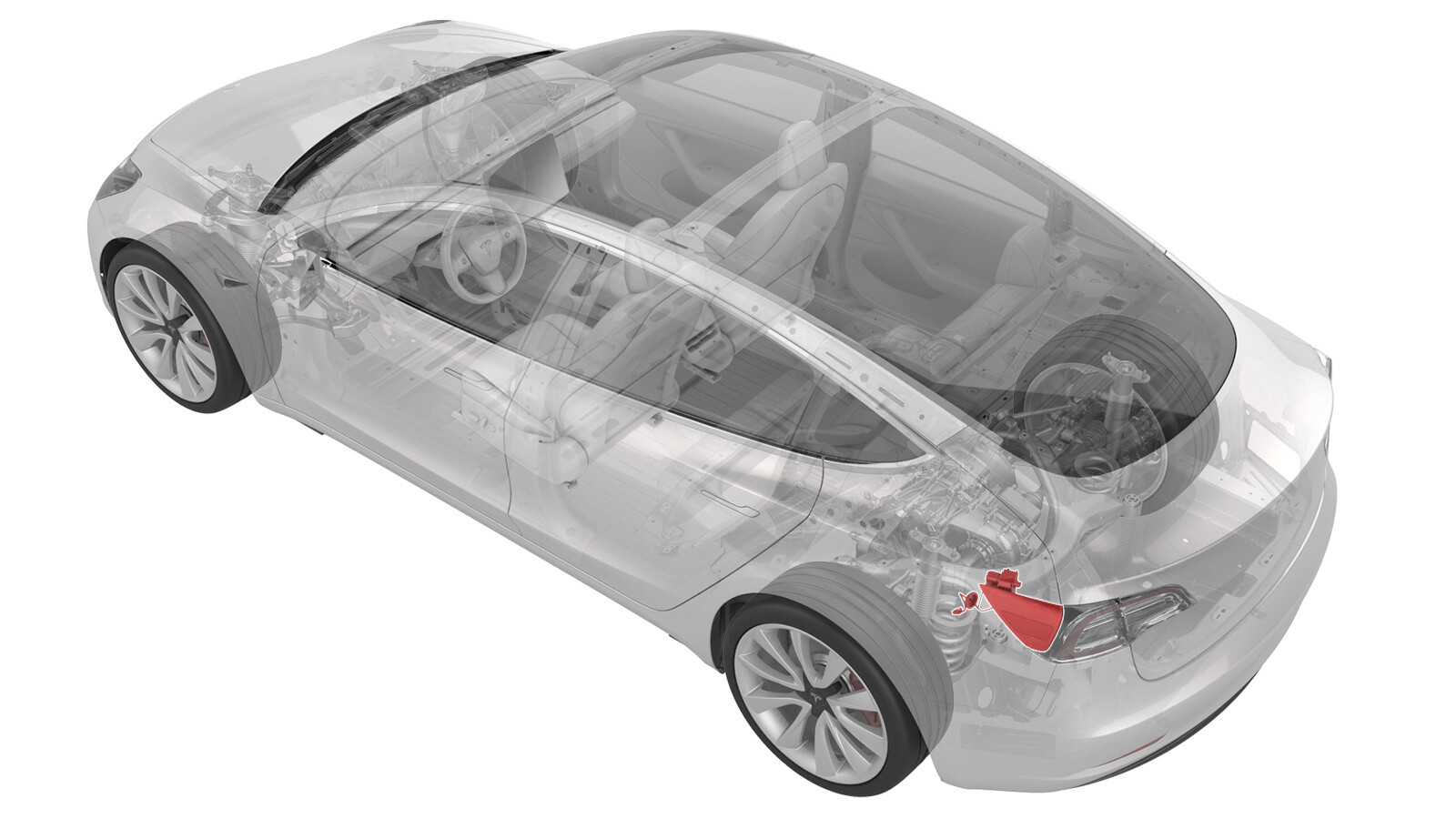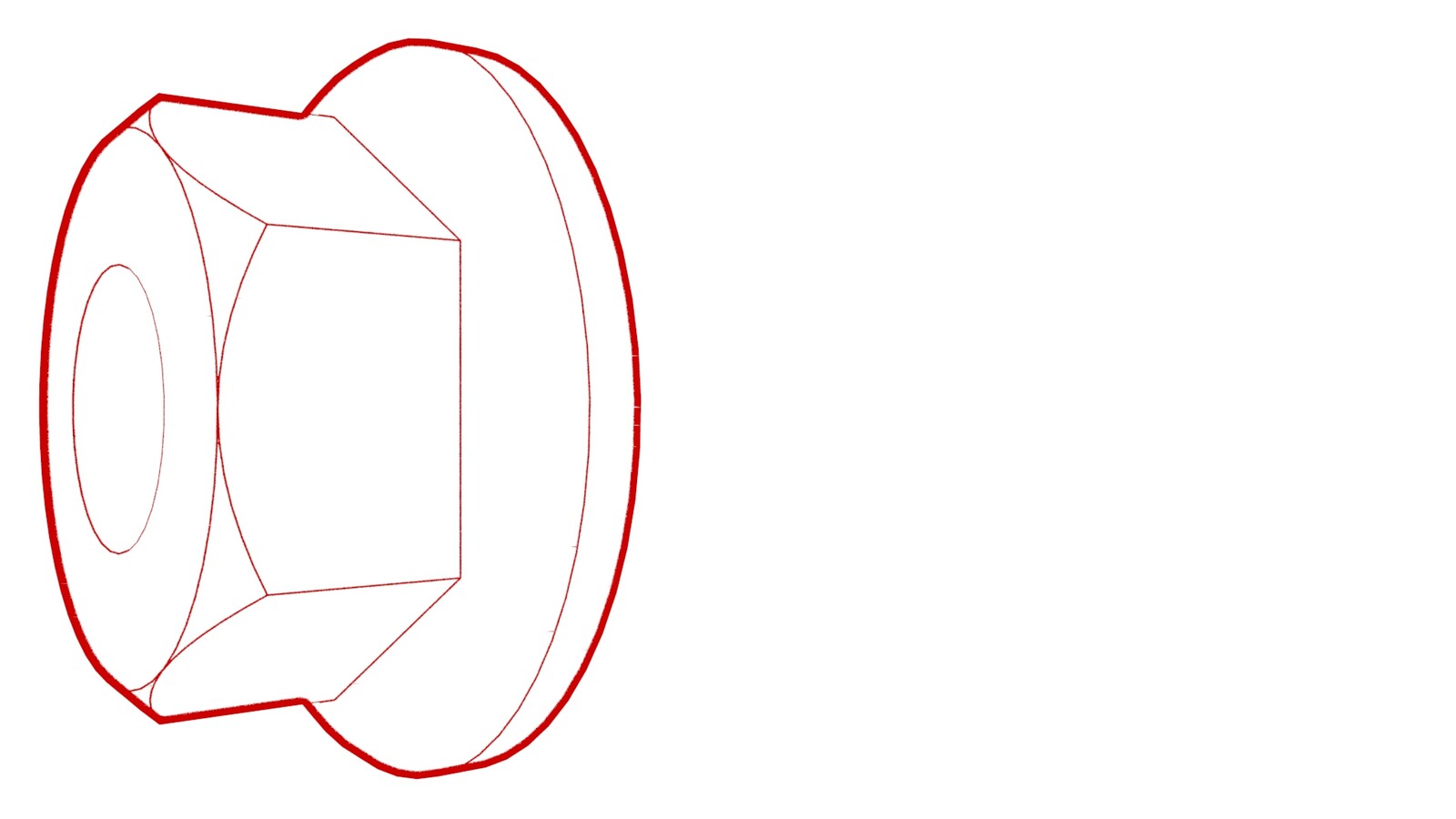Door Assembly - Charge Port (China) (Remove and Replace)
 Correction code
44014302
0.72
NOTE: Unless otherwise explicitly
stated in the procedure, the above correction code and FRT reflect all of the work
required to perform this procedure, including the linked procedures. Do not stack correction codes unless
explicitly told to do so.
NOTE: See Flat Rate
Times to learn more about FRTs and how they are created. To provide feedback on
FRT values, email ServiceManualFeedback@tesla.com.
NOTE: See Personal Protection to make sure wearing proper PPE when
performing the below procedure. See Ergonomic Precautions for safe and healthy working practices.
Correction code
44014302
0.72
NOTE: Unless otherwise explicitly
stated in the procedure, the above correction code and FRT reflect all of the work
required to perform this procedure, including the linked procedures. Do not stack correction codes unless
explicitly told to do so.
NOTE: See Flat Rate
Times to learn more about FRTs and how they are created. To provide feedback on
FRT values, email ServiceManualFeedback@tesla.com.
NOTE: See Personal Protection to make sure wearing proper PPE when
performing the below procedure. See Ergonomic Precautions for safe and healthy working practices.
- 2023-10-27: Update charge port to body bolt torque to 9 Nm.
- 2023-05-24: Removed the vehicle electrical isolation procedure.
- 1076921-01-B Insulation Multimeter, Fluke 1508
- 1130480-00-A Test Probes, Slim, Fluke TP38
Only
technicians who have completed all required certification courses are permitted to
perform this procedure. Tesla recommends third party service provider technicians
undergo equivalent training before performing this procedure. For more information on
Tesla Technician requirements, or descriptions of the subject matter for third parties,
see HV Certification Requirements. Proper personal protective equipment (PPE) and insulating HV
gloves with a minimum rating of class 0 (1000V) must
be worn at all times a high voltage cable, busbar, or fitting is handled. Refer to Tech Note TN-15-92-003, High Voltage Awareness
Care Points
for additional safety
information.
Remove all jewelry (watches, bracelets, rings, necklaces, earrings, ID tags, piercings, etc.) from your person, and all objects (keys, coins, pens, pencils, tools, fasteners, etc.) from your pockets before performing any procedure that exposes you to high voltage.
Proper personal protective equipment (PPE) is required to perform this procedure:
- High voltage insulating gloves
- Leather glove protectors
- High voltage glove tester
- Safety glasses
- Electrical hazard rated safety shoes
A glove inflator is the only recommended way to test HV gloves. Both HV gloves must pass testing before beginning this procedure. If either glove does not pass the air check, discard the pair.
Make sure that the HV gloves are not expired. HV gloves can be used up to 12 months after the testing date printed on the glove, but only 6 months after first use even if the gloves are still within the 12-month period.
Remove
- Open all doors and lower all windows.
- Remove the rear underhood apron. See Underhood Apron - Rear (Remove and Replace).
- Open the trunk.
-
Apply masking tape around
the charge port area.
- Disconnect 12V power. See 12V/LV Power (Disconnect and Connect).
- Perform the charge port voltage check procedure. See Charge Port Voltage Check.
- Remove the trunk garnish. See Garnish - Trunk (Remove and Replace).
- Remove the trunk sill trim panel. See Trim - Sill - Trunk (Remove and Replace).
- Remove the trunk floor trim. See Trim - Floor - Trunk (Remove and Replace).
- Disconnect the LH liftgate task light connector.
- Release the edge of the trunk carpet, and then move the LH trunk side trim aside.
- Remove the LH taillight. See Taillight - LH (Remove and Replace).
-
Disconnect the Low Voltage
(LV) electrical connectors from the charge port ECU.
- Put on High Voltage (HV) insulating gloves and leather glove protectors.
-
Remove the nuts (x2) that
attach the charge port busbar leads to the charge port assembly.
TIpUse of the following tool(s) is recommended:
- 10 mm deep socket
- Flex head ratchet/flex head torque wrench
- Remove High Voltage (HV) insulating gloves and leather glove protectors.
- Release the charge port manual release cable from the body clip.
-
Remove the bolts that attach
the charge port to the body, and then remove the charge port from the
vehicle.
TIpUse of the following tool(s) is recommended:
- 10 mm deep socket
- Flex head ratchet/flex head torque wrench
- Disconnect the charge port door harness from the charge port ECU.
-
Release the charge port door
grommet from the body.
-
Release the lower clips that
attach the charge port door assembly to the vehicle, then push the bottom of
the assembly out, and then remove the assembly from the vehicle.
NoteTo ease the removal of the charge port door assembly:
- Pull the assembly towards the rear of the vehicle.
- When the assembly reaches the rear of the quarter panel, pull the assembly to clear the actuator mechanism, and then pull the assembly out and away from the body.
NoteManipulation of the charge port door assembly might be necessary to completely remove the assembly from the body.
Install
-
Install the charge port door
assembly on the vehicle: Pivot the assembly so that the actuator mechanism
clears underneath the quarter panel, and then slide the assembly forward
towards the rear door.
NoteManipulation of the charge port door assembly might be necessary to fully align the assembly to the rear quarter,
-
Push the charge port door
assembly electrical harness through the opening, and then attach the charge
port door assembly with lower clips (x2).
-
Install the charge port door
grommet on the body.
WarningMake sure the harness is routed out, and the adhesive pad with zip tie is properly mounted if it is installed.
- Connect the charge port door harness from the charge port ECU.
- Put on High Voltage (HV) insulating gloves and leather glove protectors.
- Clean the charge port busbar HV header at the back of the charge port assembly with an IPA wipe, and then air dry for 1 minute.
-
Position the charge port in
the vehicle, and then install the nuts that attach the charge port to the
body.
 9 Nm (6.6 lbs-ft)TIpUse of the following tool(s) is recommended:
9 Nm (6.6 lbs-ft)TIpUse of the following tool(s) is recommended:- 10 mm deep socket
- Flex head ratchet/flex head torque wrench
-
Use the Hioki resistance meter to measure the resistance at the HV joint
between the HV busbar lead and charge port stud.
NoteThe acceptable resistance is between 0.050 mΩ (60 μΩ) and 0.325 mΩ (325 μΩ). Per the performance value, do the following:
- If the resistance is above 0.325 mΩ (325 μΩ), there is too much resistance in the High Voltage joint. Remove the fastener, clean areas with isopropyl alcohol, install fastener back and test again, as appropriate.
- If the resistance is lower than 0.050 mΩ (60 μΩ), reposition the probes and measure again.
- If the resistance is repeatedly between 0.00 mΩ and 0.050 mΩ (50 μΩ), proceed to the next step.
- Remove High Voltage (HV) insulating gloves and leather glove protectors.
- Install the charge port busbar fastener cover on the charge port assembly.
- Connect the low voltage harness connectors (x2) on the charge port, and then install the locking tabs (x2) that secure the connectors.
- If the taillight is to be reinstalled, replace the gaskets from around each taillight mounting bolt (x2) and the taillight electrical connector (x1).
- Position the LH taillight studs into the grommets, and then install the taillight onto the vehicle.
- Install the LH liftgate bump stop.
- Remove the masking tape from around the charge port area.
- Move the LH trunk side trim back into position.
- Connect the LH liftgate task light connector.
- Install the trunk garnish. See Garnish - Trunk (Remove and Replace).
- Install the trunk sill trim panel. See Trim - Sill - Trunk (Remove and Replace).
- Install the rear trunk load floor.
- Reconnect 12V power. See 12V/LV Power (Disconnect and Connect).
- Install the rear underhood apron. See Underhood Apron - Rear (Remove and Replace).
-
Verify the operation of the
charging system:
NoteUse the customer's charging equipment, if present.
- Raise all windows and close and all doors.